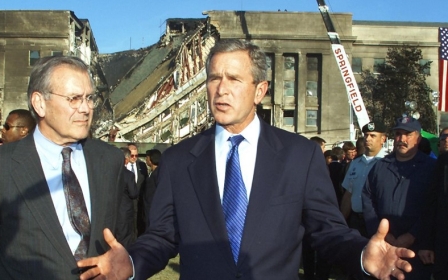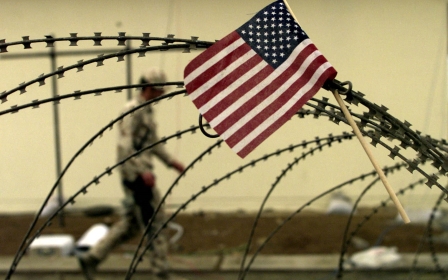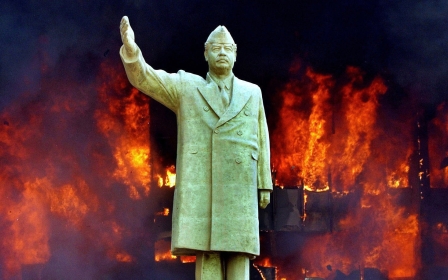More Americans worried about domestic extremism than foreign threats: Poll

As the 20th anniversary of the 9/11 attacks approaches, more Americans say they are worried about domestic extremism than threats posed from overseas, according to a survey by The Associated Press (AP) and the NORC Center for Public Affairs Research.
The survey found 65 percent of US respondents were either extremely concerned or very concerned about US-based extremist groups, while 50 percent said the same of extremist groups based outside of the country.
Americans who identify as Democrats were more likely to be concerned about homegrown threats than Republicans - 75 percent to 57 percent respectively.
Following the 9/11 attacks, the US government embarked on a wide-ranging campaign to stop extremist groups both at home and around the world, with a lot of attention directed towards Muslim communities.
A large part of Washington's focus was on al-Qaeda, the militant group responsible for the attacks, and resources were funnelled into stopping the group from conducting attacks or inspiring sympathisers within the US.
During this period, the threat of far-right domestic extremism was often downplayed, say experts.
“It's undeniable that federal law enforcement has underplayed and misunderstood the level of white supremacist violence," Hina Shamsi, director of the American Civil Liberties Union (ACLU) national security project, told the Guardian.
"And that’s in part because of the post-9/11 emphasis on surveillance and investigations of Muslims, immigrants and communities of color whom law enforcement views wrongly and unfairly through a security threat lens," she added.
According to a report by New America, a think-tank in Washington, far-right domestic extremists killed more people on American soil than any other categorised group since the 9/11 attacks.
Iraq, Afghanistan wars
The AP and NORC Center poll also found that only about a third of Americans believe the wars in Afghanistan and Iraq were worth fighting. Thirty-five percent of respondents said the war in Afghanistan was worth it, while 34 percent said the same about the Iraq war.
The US began its war in Afghanistan in October 2001, and in August 2021 it completed its full withdrawal from the country, leaving it in the hands of the Taliban, the group that it was fighting during the past two decades.
In Iraq, the US invaded the country in 2003 to oust the country's leader, Saddam Hussein, claiming that Baghdad was in possession of weapons of mass destruction - a claim that turned out to be false. In July, the Biden administration announced an end to combat operations in the country.
A landmark report released last week by the Cost of War Project found nearly one million people - including at least 387,072 civilians - were killed in the US-led wars in Afghanistan, Iraq, and other regions where Washington engaged in conflicts that have been referred to as the "forever wars".
An earlier report by the Cost of War Project found at least 37 million people had been displaced by the US-led "war on terror", on top of the hundreds of thousands of people killed in direct violence.
Middle East Eye delivers independent and unrivalled coverage and analysis of the Middle East, North Africa and beyond. To learn more about republishing this content and the associated fees, please fill out this form. More about MEE can be found here.





